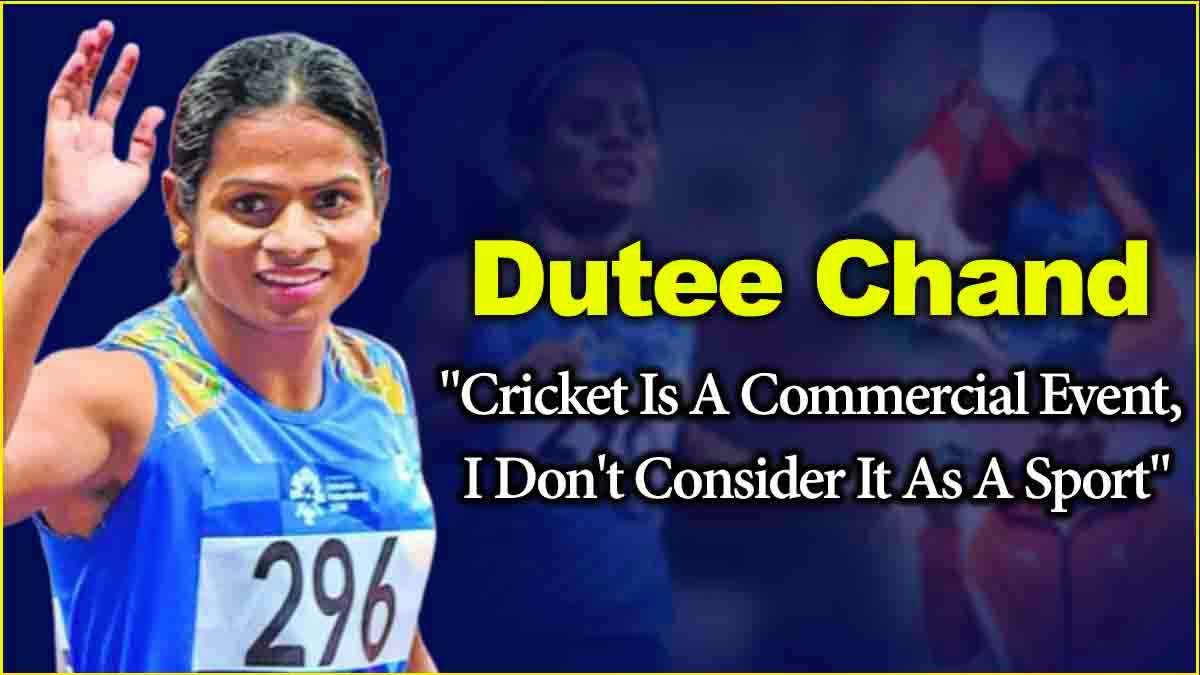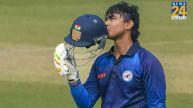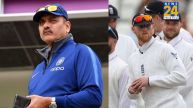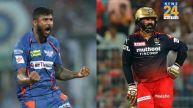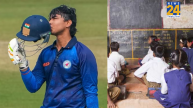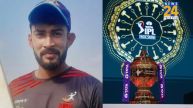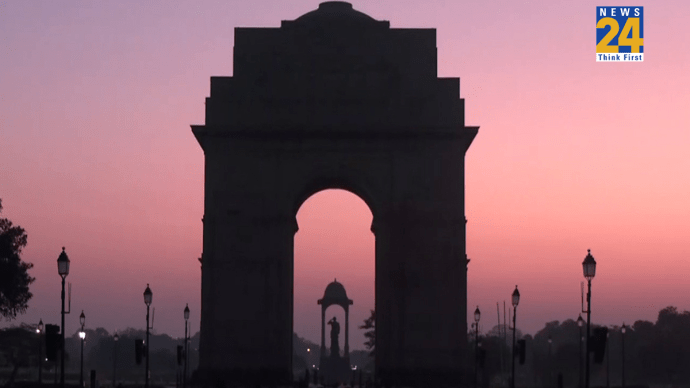Dutee Chand, a two-time Olympian and 100m national record holder, has spoken about her journey from humble beginnings in Odisha to meeting Prime Minister Narendra Modi. In an exclusive conversation with News24’s Akshat Mittal and Aditya Mallick, Dutee Chand opened up about various pressing issues, including the inherent bias that favours cricket over other sports in India. She also shared her experiences regarding the highly publicized hyperandrogenism controversy she faced, and her remarkable journey of overcoming the challenges that came with it. Dutee Chand shared her experiences of meeting Prime Minister Narendra Modi, who extended his support to help her overcome grave challenges.
Let’s delve deeper into the conversation to gain more insights.
Dutee Chand Interview: Excerpts
How would you reflect on your journey, from your early days in Odisha to meeting Prime Minister Narendra Modi, and what challenges did you encounter along the way?
- Representing my country in sports was a daunting challenge, especially since I began playing with limited resources. My ultimate goal was to compete in the Olympics, but I faced numerous obstacles along the way. Growing up, I lacked access to basic facilities like a playing field or a coach. However, the most significant hurdle I faced was nutrition. I struggled to maintain a balanced diet suitable for athletes.
- As I rose through the ranks in sports, I began to receive government support, which propelled me to improve further. My hard work paid off when I secured many medals at the world level. I had the privilege of meeting Prime Minister Narendra Modi ji on multiple occasions, sharing my story of overcoming poverty and struggle to achieve success. I was deeply impressed by his encouragement and support.
- He also bestowed his blessings upon me, saying, “When you compete in the Olympics, strive for a top position and make your nation proud.”
What emotions and thoughts flooded your mind when you shattered the national 100m record in 2021?
- My record-breaking journey began in 2012 at the “Youth National” in Bangalore, where I set a junior record in the 100m event. At that time, the senior record was held by the legendary PT Usha, with a remarkable time of 11.43 seconds. In 2016, I achieved a major milestone by breaking this 11.43 seconds record in Delhi, clocking an impressive 11.31 seconds in the 100m event. I then went on to surpass my own record 10 times.
- In 2021, I set my sights on the Olympic qualifying mark in the 100m event. With determination, I pushed myself to achieve a time of 11.17 seconds. In 2019, I achieved a major milestone by setting a new record with a time of 11.21 seconds at the Senior Athletic Championship. I continued to push myself, setting a new record with times of 11.17 seconds in Patiala, Punjab. With my sights firmly set on the Olympics, I focused all my energy on qualifying.
In a nation where cricket dominates the sports landscape, what emotions and thoughts do athletes from other sports experience?
- In my opinion, cricket is a commercial event. I don’t consider it as a sport. Cricket is an entertaining game that captivates audiences for hours, my focus is on Olympic-level sports where athletes strive for and win prestigious medals. Corporate houses promote cricket to promote their respective brands. In many countries like the USA and China, cricket isn’t a dominant force, there’s a strong emphasis on promoting sports that yield Olympic medals.
- While other countries provide ample support to their athletes, in India, it seems that more emphasis is placed on sports like cricket. Unfortunately, athletes who genuinely represent the country in events like Olympics, often don’t receive the same level of support.
Do you think athletics in India can experience significant growth if private sponsors invest in the sport?
- The landscape of athletics in India is gradually shifting, with corporate houses like JSW, Reliance Foundation, and Tata stepping in to support athletes. Corporate investment in athletics is gaining momentum, with increasing support for athletes. This trend is expected to continue, attracting more brands to the sport.
- As athletics in India continues to gain momentum, the sport will receive more promotion, and athletes who previously lacked resources will gain access to better facilities, ultimately increasing India’s chances of winning Olympic medals.
What advice would you like to share with the upcoming generation of athletes?
- Parents often prioritize academics over all else, heaping excessive pressure on their kids to study. Just as we encourage children to focus on their studies through interactive methods, investing time in sports can similarly foster growth and development in this area. We can successfully balance academics with sports, and vice versa, allowing us to pursue both passions simultaneously. Currently, the government is providing substantial support to the sports sector.
- Athletes in India are now receiving comprehensive support, including government jobs, financial assistance, and cash incentives. Furthermore, the establishment of numerous sports authorities and campuses across the country has created a conducive environment for sports development.
Could you share some highlights from your meetings with Prime Minister Narendra Modi? Is he a passionate supporter of sports?
- I have received a lot of help from him personally. In 2014, I had the opportunity to meet Prime Minister Narendra Modi in person, following my name coming in the hyperandrogenism case. I took that chance to express my passion for sports and my desire to continue competing. Prime Minister Modi assured me to provide whatever support I needed.
- At that time, I sought Prime Minister Modi’s assistance in filing a case in Switzerland to challenge the IAAF (now WORLD ATHLETICS) rule. I require assistance with the financial support.
- The Prime Minister then asked Mr. Sarbananda Sonowal, the then Sports Minister, to help me. Afterwards, the government covered all my expenses, including flight tickets, accommodation, food, and other costs, enabling me to pursue the case successfully and return to the track.
ALSO READ: ‘Urban Naxal’ To ‘Mountain Man’: Meet Chhattisgarh’s Rahul Gupta, Who Conquered Mt Everest

